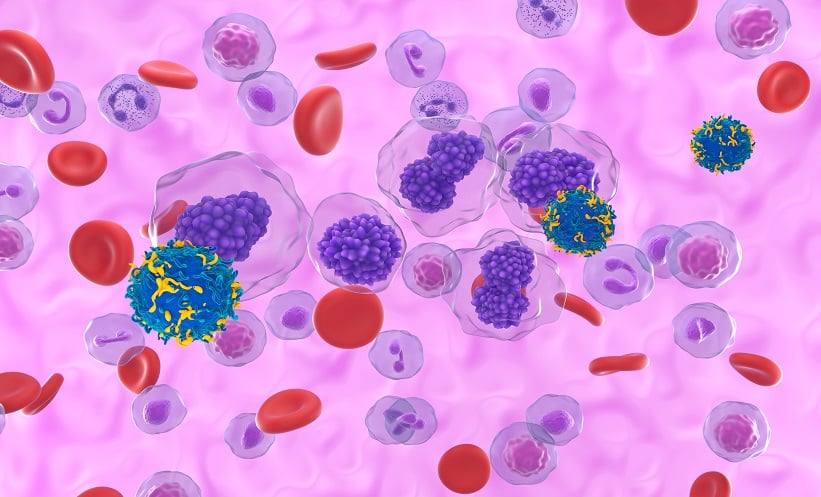A RECENT study highlights significant advancements in targeting acute myeloid leukaemia (AML) in paediatric patients using chimeric antigen receptor T-cells (CAR-T). Researchers faced challenges due to the widespread expression of AML-associated antigens in healthy cells and the high variability of these antigens among leukemic cells. The study analysed single-cell expression data from 30 primary paediatric AML samples, identifying key antigens such as CD33, CD38, CD371, IL1RAP, and CD123, which exhibited substantial heterogeneity both across different patients and within the same patient’s leukemic cells.
To tackle this challenge, the team developed a modular Adapter CAR (AdCAR) platform, which allows for precise control over CAR-T-cell functionality. Initial results demonstrated that newly created adapter molecules (AMs) effectively targeted CD33, CD38, CD123, CD135, and CD371 in both laboratory and animal models.
The findings revealed that the inherent intratumoural heterogeneity of antigen expression often leads to antigen escape and the failure of single-target CAR-T therapies. However, in patient-derived xenograft (PDX) models, the study showed that combinatorial targeting using AdCAR-T-cells could successfully treat heterogeneous AML.
This research emphasizes the importance of addressing antigen variability in paediatric AML and introduces a promising strategy for precision immunotherapy through multiplexed targeting, potentially transforming treatment outcomes for affected children.
Reference
Atar D et al. Rational combinatorial targeting by adapter CAR-T-cells (AdCAR-T) prevents antigen escape in acute myeloid leukemia. Leukemia. 2024.







